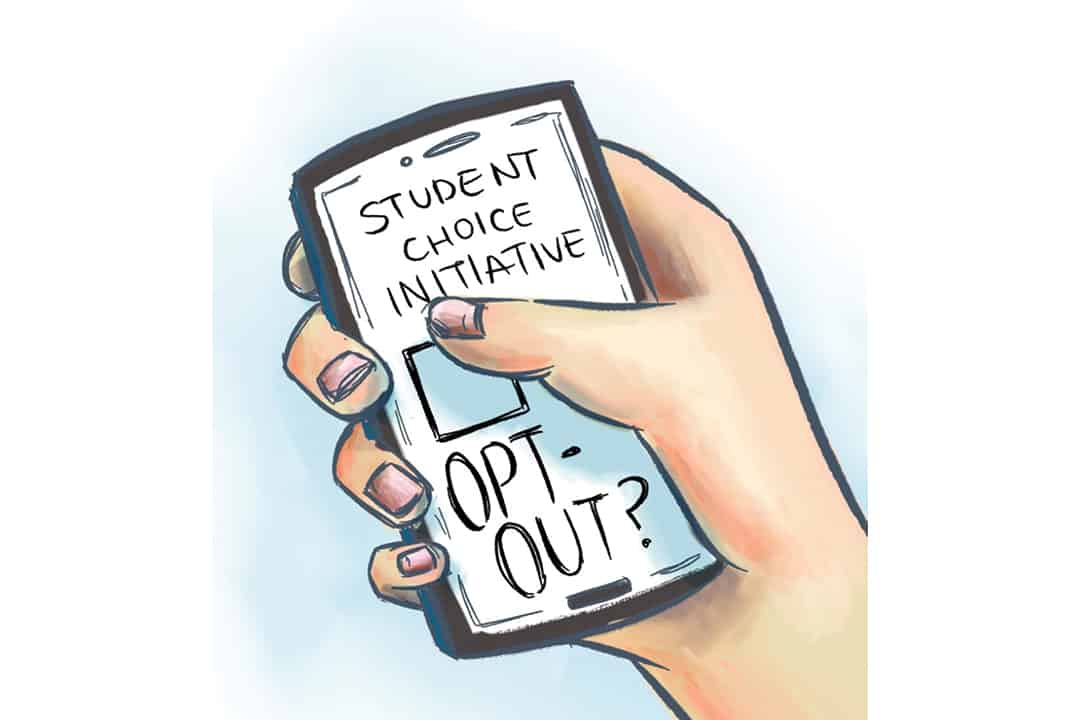As the fall semester opt-out period came to a close on September 19, levy-funded student groups are now receiving information on their funding for the semester. The Student Choice Initiative (SCI), mandated by the Ontario government earlier this year, designates certain fees as “non-essential” and requires universities to allow students to opt out of them as they wish.
The groups that are affected by this change include student unions, student advocacy groups, and campus media, among others. Many groups expressed to The Varsity that they are still unsure of the impact the SCI will have on their organizations, and that the winter opt-out period could yield different results.
Multiple groups, like the Sexual Education Centre (SEC), also noted that their overall opt-out rate was around 25 per cent. “This means no new books for our library, fewer fun events for UofT students, fewer special products of the month, and more,” wrote Leah West, Executive Director of the SEC, in an email to The Varsity.
“We know that many people rely almost exclusively on us for free safer sex supplies and menstrual products. We worry that the current funding cuts will put these groups at risk by making these things even less accessible,” West noted of the SEC’s operations in the coming year.
“These cuts strike at the heart of our organization,” wrote Students for Barrier Free Access (SBA) Board Member Alisha Krishna in an email to The Varsity. “We cannot provide the same services as previously, especially since we were forced to implement staffing cuts. Not only does this mean we must reduce the services offered to our membership, but it is also significant because SBA has always tried to hire marginalized, disabled people who face barriers to employment, which is something we must now scale back on.”
Lesbians, Gays, Bisexuals, and Trans People of the University of Toronto (LGBTOUT) has also felt the impact of the policy. “The SCI has reduced the amount of money that LGBTOUT will receive this year by a fair amount, and it will definitely affect some of the events and programming we will be able to do,” wrote LGBTOUT Executive Director Cheryl Quan in an email to The Varsity.
Many groups’ levies are distributed through the University of Toronto Students’ Union (UTSU), including LGBTOUT and SBA.
“For the majority of these groups, we are their only source of income,” wrote Arjun Kaul, UTSU Vice-President Operations, in an email to The Varsity. He also wrote on the topic of UTSU’s opt-outs: “we are fortunate to be sitting at a relatively high percent of funds deemed ‘essential.’ We will likely have to trim some services, but fortunately, we have worked out plans to keep all of our services up and running, at the very least.”
Some groups expressed that while the SCI does not pose an existential threat to their organizations, they have had difficulty with the timeline of the opt-outs and the financial uncertainty before groups were made aware of their opt-out rate.
The Victoria University Students’ Administrative Council (VUSAC) President Alexa Ballis wrote, “The biggest impact that the Student Choice Initiative has had on VUSAC is that it has made the budgeting process extremely difficult,” in an email to The Varsity. She added that “financial planning over the summer was almost impossible.”
Ballis criticized the process for not giving groups updates on their numbers before the fall opt-out period was over. She further noted that, because the fees must be itemized and funds cannot be moved around, this added difficulty for the VUSAC Commissioner’s planning.
University College Literary & Athletic Society (UC Lit) President Danielle Stella was more optimistic. “Our overall opt-out percentage is lower than expected and we believe the decrease in funding will be manageable,” she wrote in an email to The Varsity. She noted that the UC Lit is changing its budgeting system to accommodate the SCI, but are still reaching out to university stakeholders to address any shortcomings in funding.


